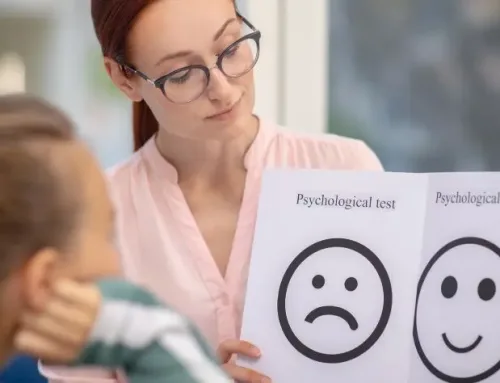Alternatives to Dissertation in PsyD Programs and their Benefits

The idea of earning a PsyD without the demand of writing a traditional dissertation has become increasingly appealing—especially for professionals who want to focus on clinical practice rather than lengthy academic research. Some programs now offer alternatives like applied projects, clinical case studies, or capstone experiences that align more closely with real-world work in mental health. These options still demand rigor but more so aim at innovative approaches how clinicians can serve clients and communities.
As the field evolves, so do the pathways to completing a doctoral degree in psychology. Understanding the different models, and what each option means for your training, time, and future career, can help you choose a program that supports your goals and respects your professional direction.
The Role of Dissertations in Doctoral Psychology
In doctoral psychology programs, the dissertation has long been considered a cornerstone of advanced academic training. It’s a substantial, independent research project that contributes original knowledge to the field. For PhD students, the dissertation often serves as preparation for a career in academia, research, or scholarly publishing—where deep theoretical exploration and data-driven insight are foundational.
Even in PsyD programs, where the focus leans toward clinical application, some institutions continue to include dissertations as part of the curriculum. The reasons vary but often include a commitment to maintaining academic rigor, ensuring students research literacy, or meeting accreditation and institutional standards. In these programs, the dissertation may take a more applied form but still carries significant weight.
The inclusion of a dissertation in certain PsyD programs often reflects program values, faculty training backgrounds, or broader academic traditions. Some reasons include:
- Ensuring graduates can critically evaluate and apply research
- Aligning with accreditation or university-level standards
- Reinforcing the discipline of long-form academic work
- Supporting students who may pursue teaching or supervisory roles
As PsyD education continues to evolve, more programs are rethinking the role of the traditional dissertation. Many PsyD students are already working professionals who want to enhance their practice, grow into supervisory roles, or expand their reach within their communities. For them, research is valuable, but long-form academic writing may not reflect how they’ll actually contribute to the field.
Alternative capstone models are emerging to better match these goals. Programs are designing final projects that emphasize applied knowledge, practical outcomes, and clinical relevance, without requiring years of research design and data analysis.
Dissertation Alternatives in PsyD Programs
As PsyD programs evolve to better serve clinicians and practice-focused professionals, many are offering alternatives to the traditional dissertation model. These alternatives still emphasize critical thinking, integration of knowledge, and academic rigor, but they do so in a format that’s more aligned with how PsyD graduates apply their training in the real world.
Rather than spending years developing a formal research study, students often complete projects or portfolios that reflect their clinical expertise, leadership capabilities, or impact in a community setting. Some programs even give students the choice between a dissertation and a practice-based final project, allowing them to select the format that fits their professional goals and learning style.
Capstone Projects
Capstones are a popular non-dissertation format that ask students to apply their learning in a tangible, real-world context. These projects often involve designing, implementing, or evaluating a program or intervention in a clinical, organizational, or educational setting.
Examples include:
- Designing a school-based mental health screening tool
- Implementing a psychoeducation curriculum for parents or caregivers
- Evaluating an existing therapy program and recommending improvements
- Developing training modules for clinical staff in a nonprofit clinic
Capstones are typically supported by a faculty advisor and include a written component, such as a report or reflection paper, to document the process and outcomes.
Applied Clinical Project or Portfolio
The applied clinical project—sometimes presented as a portfolio—is another common format. This option showcases the student’s clinical development and skill across multiple dimensions of practice. The portfolio may include:
- Case formulations and conceptualizations
- Treatment plans with theoretical integration
- Reflective essays exploring therapist identity and growth
- Outcome assessments and evaluation tools
This model allows students to demonstrate their clinical competence through authentic examples from their own work, often supported by commentary and supervision logs.
Scholarly Literature Reviews or Applied Theoretical Papers
Some programs replace original research with a deep literature review focused on a student’s area of clinical interest. These papers explore how existing theories and studies inform evidence-based practice, often ending with recommendations for application in specific settings.
For example, a student might write:
- A review on trauma-informed care in pediatric populations
- An analysis of cultural considerations in psychodynamic therapy
- A paper exploring mindfulness-based interventions in community health
Though less research-heavy than dissertations, these papers still require strong academic writing, synthesis, and theoretical understanding.
Community-Based Projects or Program Development
Community-focused alternatives encourage students to use their training to meet local mental health needs. These projects often involve collaboration with schools, nonprofits, clinics, or advocacy organizations. Students may design:
- A new intake or referral system for a community clinic
- A support program for teens affected by family addiction
- A psychoeducational campaign promoting mental health in underserved areas
These projects are often presented to both the university and the partnering organization, demonstrating how psychological knowledge can improve access and outcomes.
Comprehensive Exams + Applied Paper Combo
Some PsyD programs use a model that combines comprehensive exams with a shorter applied paper or capstone proposal. The exams test the student’s knowledge in core areas—such as ethics, theory, assessment, and intervention—while the paper allows them to explore a specific area of practice in more depth.
This approach is often appealing to students who excel in coursework and clinical application but may not want to commit to an extended research or project timeline.
These alternatives to the dissertation help ensure PsyD students graduate with a meaningful, applicable body of work, something that strengthens their skills, reflects their career path, and prepares them for leadership and clinical excellence.
SCUHS’ Practice-Focused PsyD Model
At Southern California University of Health Sciences (SCUHS), our Doctor of Psychology (PsyD) in Psychodynamic Psychology takes an innovative approach to doctoral education to meet the scholarly and practice needs of working clinicians.We designed this program for working professionals with clinical backgrounds who are ready to expand their reach. Academic growth happens alongside clinical leadership, emotional insight, and professional identity development. Under the guidance of Dr. Jens Schmidt, students explore the classical and contemporary foundations of psychodynamic theory and apply those insights to meaningful, community-focused practice.
What Makes SCUHS Different
- No traditional dissertation required
- Scholarly development is woven into coursework, supervision, and clinical engagement
- Students apply insights directly within their current roles, creating real-time integration
- Program assumes prior experience and builds on it, rather than starting from square one
- Emphasis on reflective depth, advanced clinical thinking, and psychodynamic theory
- Faculty mentorship focused on practice growth, not publication timelines
This model allows students to graduate with a strong doctoral identity, confident in their ability to influence individuals, families, and systems. They leave with the insight and tools to lead, whether in a clinic, a classroom, or a community organization.
A Doctorate Built for Real-World Impact
When choosing a PsyD program, focus on how you want to grow as a clinician, a thinker, and a leader. Whether you’re drawn to alternatives to the traditional dissertation, looking for a deeper understanding of psychodynamic child psychology, or seeking a flexible format that honors your current professional life, SCUHS offers a clear and intentional path forward.
Our program combines academic rigor, meaningful clinical application, and financial aid and scholarship opportunities that help make advanced training more accessible. If you want to explore this path, join a virtual information session or reach out to us admissions@scuhs.edu.
FAQs
Are there PsyD programs with no dissertation requirement?
Yes, some PsyD programs offer alternatives to the traditional dissertation. Instead of completing an original research study, students may engage in clinical capstones, case-based projects, or applied portfolios that integrate theory with real-world practice. These options are ideal for professionals focused on deepening their clinical skills rather than pursuing academic research or publishing.
How do PsyD capstone projects compare to dissertations?
Capstone projects are typically shorter and more practice-oriented than dissertations. They often involve case studies, program development, or clinical reflections tied to a student’s area of expertise. While dissertations focus on producing original research, capstones emphasize real-world application, which is more aligned with the goals of most PsyD graduates working in clinical settings.
Can I still get licensed if I complete a PsyD with no dissertation?
Yes. Licensure requirements are determined by your state board and typically focus on coursework, supervised clinical hours, and passing the appropriate licensing exams. Whether your PsyD includes a dissertation or a capstone usually doesn’t affect your eligibility. Always double-check with your state licensing board to ensure your chosen program meets all local requirements.
Who is a good fit for the SCUHS PsyD?
This program is a great fit for professionals with a master’s degree in psychology or a related field who are ready to grow clinically and professionally. It’s ideal for those who want to deepen their understanding of psychodynamic psychology, develop leadership skills, and work in complex community settings, without stepping away from their careers.
How can I learn more about the SCUHS PsyD program?
The best way to explore the SCUHS approach is to join a virtual information session or connect with our admissions team. You’ll hear directly from faculty, get a feel for the program’s structure, and see how it fits with your goals. You can also email admissions@scuhs.edu to start the conversation. We’re here to help.
Related Posts




